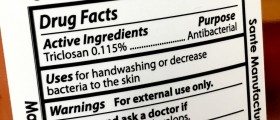
Antibiotics
Antibiotic medications are the drugs used to treat bacterialinfections in the body. They could inhibit the growth of bacteria or kill thebacteria, without being harmful for the human organism. Antibiotics do not workagainst viruses, fungi or parasites, just the bacteria infecting the body.
The first discovered antibiotic was penicillin in 1928. For thatdiscovery, Sir Alexander Flemming received a Nobel Prize. In 1942 SelmanAbraham Waksman discovered streptomycin and some other medications, and alsointroduced the word antibiotic.
There are several mechanisms of action of antibiotics. Thesemedications might suppress the development of bacteria and they are calledbacteriostatic medications. In other cases, when they kill the bacteria these arethe bactericide drugs.
Bacteriostatic Antibiotics
The mechanism of action of these antibiotics is interferencein the synthesis of bacterial proteins. Tetracyclines, macrolides,chloramphenicol and spectinomycin are the bacteriostatic drugs. Tetracyclines andchloramphenicol are used to treat all kinds of bacterial infections. Macrolidesare proven to be helpful in fighting with the gram positive bacteria andspectinomycin is used to treat gonorrhea infection.
Bactericidal Antibiotics
Bactericide or bacteriocide medications kill the bacteriathat caused infection. They work by affecting the membrane or the wall of bacterialcells and disabling the bacteria to survive. Another way of action is stopping thebacterial metabolism, which also cause the death of bacterial cells. Bactericidalantibiotics are penicillin, quinolones, and polymyxins. Some of the substancesknown to have bactericidal effects are used as antiseptic and disinfectants.
Antibiotic Spectrum
Antibiotics might be specific for one type of bacteria orfor the group of bacteria, which divides these medications to narrow spectrumand broad spectrum medications. When the target is the specific disease doctorsare using narrow spectrum antibiotics, such as glycylcyclines andoxazolidinones. Other antibiotic medications might be used to treat differentbacterial infections. These are: chloramphenicol, tetracycline or tigecycline.
Antibiotic Resistance
Large doses of antibiotics or long term use of thesemedications might lead to antibiotic resistance. The bacteria will becomeresistant to the drugs, which will reduce the body’s ability to fight againstother viral, fungi or parasite health problems.
To avoid antibiotic resistance do not use these medicationswithout the consultation with your doctor. Do not use antibiotic medications totreat a viral infection, or an infection without the identified cause, for it won’ttreat the infection. Additionally, these antibiotics will kill the goodbacteria in the intestines and decrease their number, leaving the body moreexposed to infections.
















Your thoughts on this
Loading...